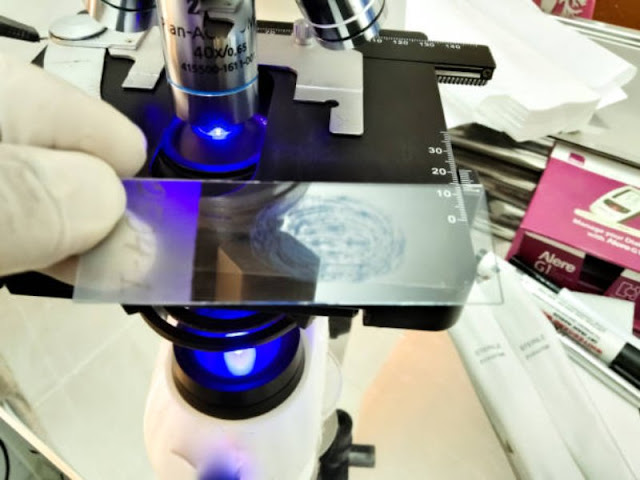Featured
- Get link
- X
- Other Apps
AI in Cancer Biomarker Discovery technology
.jpg)
AI in Cancer Biomarker Discovery technology beauty
The synergy between Artificial Intelligence (AI) and cancer
biomarker discovery epitomizes the beauty of advanced technology harnessed for
the noblest of pursuits: improving early detection, diagnosis, and treatment of
one of humanity's most formidable adversaries – cancer. This convergence
marries the intricate complexities of oncology with the computational power of
AI, yielding insights that have the potential to renovate cancer care and save
countless lives. The beauty lies not only in the technological elegance but in
the profound impact on healthcare outcomes and the relentless quest to conquer
a devastating disease.
Cancer biomarkers, subtle molecular indicators of disease
presence and progression, have long been sought after for their potential to
enable early detection and more targeted therapies. However, their discovery is
often akin to finding a needle in a haystack, as the human body's biological
systems are intricate and dynamic. AI magnifies the beauty of cancer biomarker
discovery by analyzing vast datasets encompassing genomics, proteomics,
imaging, and clinical data. Machine learning algorithms meticulously mine these
data goldmines, identifying subtle patterns and correlations that might elude
human observers.
One of the most striking aspects of AI in cancer biomarker discovery
is its ability to handle complexity. Cancers are heterogeneous, evolving
diseases with diverse genetic mutations and cellular aberrations. AI excels at
deciphering this complexity, sorting through multifaceted datasets to extract
crucial information. This capacity to integrate diverse data types and reveal
hidden relationships between biomarkers and disease states enhances our
understanding of cancer's intricacies, further propelling the quest for precise
diagnostics and personalized therapies.
The predictive prowess of AI adds another layer of beauty to
cancer biomarker discovery. Machine learning models trained on historical
patient data can forecast disease trajectories, treatment responses, and
potential relapses. These predictions empower oncologists to make informed
decisions, optimizing treatment plans and tailoring interventions based on
individual patient profiles. This proactive approach fosters better patient
outcomes while reducing the often debilitating side effects associated with conventional
trial-and-error treatment strategies.
Furthermore, AI's contribution to accelerating the drug
development process is a testament to its beauty in cancer biomarker discovery.
By identifying potential biomarkers associated with specific cancer subtypes,
AI can guide researchers in designing more effective clinical trials. This not
only expedites the path to new therapies but also enhances the likelihood of
successful outcomes by focusing on patient cohorts most likely to benefit. The
efficiency gained from AI-powered drug development is a remarkable
manifestation of technology's capacity to streamline processes and minimize
trial costs.
The democratization of cancer research and diagnostics is an
additional facet of the beauty brought forth by AI. Historically, access to
cutting-edge research tools and expertise has been limited to well-funded
institutions. AI-powered platforms are changing this paradigm by providing
researchers worldwide with user-friendly interfaces to explore complex datasets
and conduct analyses. This inclusivity fosters collaboration, ignites
innovation from unexpected corners, and magnifies the potential to unearth
groundbreaking insights that might have otherwise remained hidden.
While AI's potential in cancer biomarker discovery is
awe-inspiring, ethical considerations must be diligently addressed to preserve
its beauty. Safeguarding patient privacy, ensuring data transparency, and
minimizing biases within AI algorithms are crucial components of responsible
implementation. Upholding these ethical principles ensures that the potential
benefits of AI-driven biomarker discovery are maximized while minimizing
potential risks.
In conclusion, the beauty of AI in cancer biomarker
discovery is a symphony of technological ingenuity, scientific curiosity, and
human compassion. By unraveling the intricate web of molecular clues that
cancers leave behind, AI illuminates pathways to earlier detection, tailored
treatments, and improved patient outcomes. This technology exemplifies the harmonious
coexistence of innovation and empathy, embodying humanity's relentless quest to
conquer a devastating disease. As AI continues to evolve, its role in cancer
biomarker discovery shines as a testament to human determination, collaborative
effort, and the unwavering pursuit of a healthier world.
- Get link
- X
- Other Apps


Comments
Post a Comment